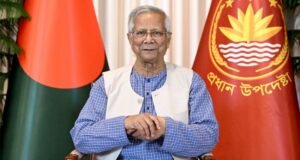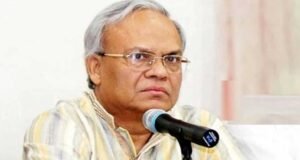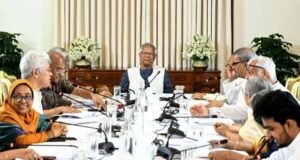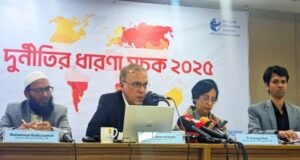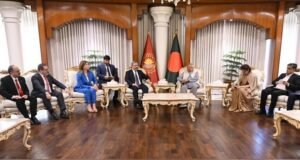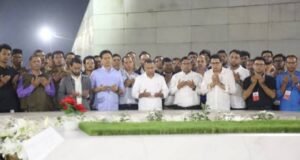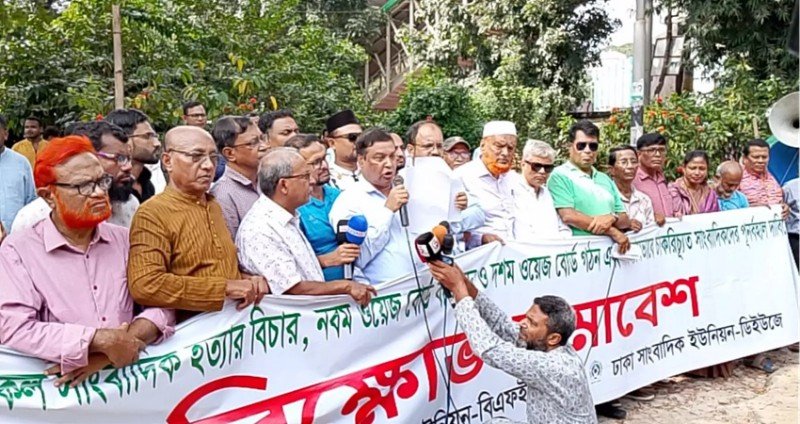
Journalists across Bangladesh held demonstrations on Saturday demanding the implementation of the “No Wage Board, No Media” policy, enactment of a journalist protection law, introduction of two weekly holidays, and repeal of all anti-media black laws.
The protests, organised under the banner of the Bangladesh Federal Union of Journalists (BFUJ), highlighted a 39-point charter of demands aimed at ensuring press freedom, fair wages, and journalists’ welfare.
At a central rally in front of the Jatiya Press Club in Dhaka, BFUJ Secretary General Kader Gani Chowdhury presented the demands. Dhaka Union of Journalists (DUJ) President Shahidul Islam presided over the event, which was also addressed by Jatiya Press Club President Hasan Hafiz, BFUJ Senior Vice-President Obaidur Rahman Shahin, Vice-Presidents Khairul Bashar and AKM Mohsin, and several other senior journalists.
Among the key demands are as follows.
Immediate implementation of the ninth wage board and formation of the tenth, ensuring a unified wage structure for print, electronic, online, and multimedia journalists.
Strict enforcement of the ‘No Wage Board, No Media’ policy to guarantee fair pay and benefits.
Formulation of a journalist protection policy and establishment of a separate labour court for journalists.
Two weekly holidays in line with other professions.
End to harassment, intimidation, and killings of journalists, with speedy trials for all murder cases, including that of Sagar-Runi.
Repeal of all anti-media laws, ensuring editorial and institutional independence of media outlets.
Fair wages and job security for district correspondents, many of whom work unpaid.
Written appointment letters, timely salary disbursement, and health and accident insurance for media workers.
Inclusion of journalists in state policymaking and an end to intelligence agency interference in media operations.
Tax relief on newsprint imports and recognition of media as a formal industrial sector for sustainable growth.
Kader Gani Chowdhury said the BFUJ envisions “a transformed media environment where journalists can work freely, without fear or favour, upholding truth and responsibility as the core of journalism.”
He added that the nationwide protests demonstrate the unity of journalists in defending their professional rights and press freedom.
 Weekly Bangla Mirror | Bangla Mirror, Bangladeshi news in UK, bangla mirror news
Weekly Bangla Mirror | Bangla Mirror, Bangladeshi news in UK, bangla mirror news


